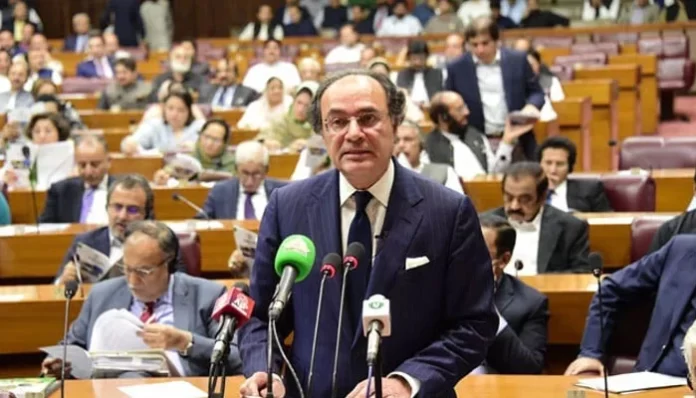Finance Minister Muhammad Aurangzeb on Wednesday underscored the need for Pakistan to strengthen fiscal and external buffers to withstand global uncertainties, citing geopolitical tensions, trade fragmentation, and border and law-and-order challenges.
Speaking at an event, he said several emerging markets, including Pakistan, are on a path of structural reforms. “The federal government and the Ministry of Finance need to ensure that these buffers are in place,” he said, adding that macroeconomic stability has been achieved but caution is necessary to avoid a “gold rush situation.”
Citing data, Aurangzeb noted that large-scale manufacturing grew around 4% year-on-year in the first four months of the fiscal year, while warning that the figures are not yet indicative of a long-term trend. He projected Pakistan’s growth at around 3.5% this year, despite the impact of recent floods, and forecast 4% growth over the next two to three years, with potential to reach 6–7% in the medium term, provided momentum in agriculture, manufacturing, and services is sustained.
The minister highlighted Pakistan’s growing attractiveness for foreign investment, noting a shift of multinational focus from the West to the East. He cited Google’s recent announcement to open offices in Pakistan and position the country as a technical and export hub. He emphasized that investor decisions are driven by returns on investment and other commercial considerations.
On structural reforms, Aurangzeb clarified that policymaking is separate from the Federal Board of Revenue (FBR) and noted recent export-supportive measures. He said the prime minister abolished the Export Development Surcharge (EDS), previously considered for suspension, providing immediate relief to exporters and improving Pakistan’s global competitiveness.
The minister also reported stable remittances and external inflows, highlighting strong Roshan Digital Account performance and improved institutional flows under SCRA following a lock-in period to curb short-term arbitrage.
Addressing concerns on high taxation, energy costs, and expensive financing, he said easing monetary conditions would reduce financing costs, while urging corporates to diversify funding through capital markets for longer-tenor, more competitive financing. He reiterated government commitment to resolving structural issues in taxation and energy and to closely monitoring the impact of recent tariff adjustments.
On investment and security, Aurangzeb emphasized that national security, macroeconomic stability, and profit repatriation are essential for attracting and retaining global investment. He assured stakeholders that policy measures will continue to be reviewed factually and transparently, while remaining open to business community feedback.
Finally, he highlighted development financing, noting that the Asian Development Bank has approved $48 million for water resources projects in Balochistan.




